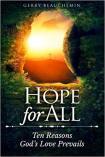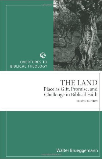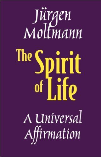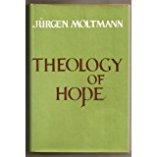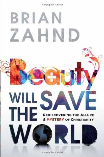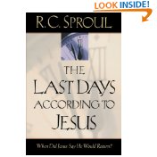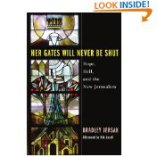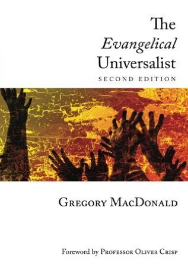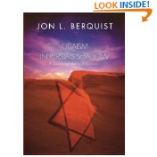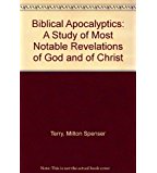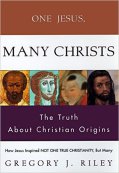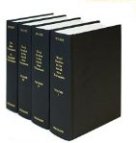
BIBLE STUDY RESOURCES AND OTHER AUTHORS
Recommended reading of authors who present
their own perspectives.
Jonathan's Recommended Biblical Topics:
Hope For All Description:
What happens after we die? Most people hope they'll go to Heaven—especially if they fear another place called “hell.” Horrifying things have been said about God’s judgment—the most terrifying is that its sorrows never end. But what if divine judgment has been gravely misunderstood? What if it has a purifying nature which transforms our heart? Hope for All explores ten key Bible truths that support this hope. Is this too good to be true? Examine the evidence for yourself. You just might find that God is the loving Father of us all—one who never gives up on any of His children.
About the Author:
Gerry and his wife, Denise, have been married since 1980 and have three daughters and seven grandchildren. They’ve been involved in Christian missions since 1986, ordained in ministry in 1992. They
have lived and served overseas for many years—in Asia and Africa, serving with Youth With A Mission, Philippine Health Care Ministries, the Luke Society and Dakar Academy in Senegal, W. Africa. They
helped pioneer the “House of Hope” in Senegal—a medical-dental health care clinic serving those in great need. It continues to this day. Since 2001, Gerry has been training lay persons in simplified
dental care for the developing world. Recently, he has adopted an exciting dental care breakthrough which enables him to train missionaries and international aid workers both online and in one and
two-day workshops. www.DentalTrainingForMissions.com Why write a book about eternal destiny? Although Gerry believed in and loved God for most of his life, he was deeply troubled—troubled over the
horrific teaching of everlasting punishment. He saw the contradictions this belief created in Scripture and in the Christian faith and sensed deep in his spirit that something was very wrong. What
qualifies Gerry to write such a book? When a close friend, a pastor, shared this hope with him in 1998, Gerry was compelled to search it out for himself—being what some might call a Berean. For many
years he has intensively reflected on the works of others and studied the Scriptures on this theme. He has found solid Biblical evidence for his conclusion of hope—evidence that is here presented in
simple terms most people can understand. Gerry asked himself, “Who am I to write such a book?” Then he recalled 1 Corinthians 1:26-29: “God hath chosen the foolish things of the world to confound the
wise … that no flesh should glory in His presence.” (KJV) Those words inspired him to the task of writing … believing that God would indeed bless his endeavor.
Gerry shares part of his journey into this Hope in a short 6 minute YouTube video:
www.youtube.com/watch?v=vJ07EnXaGos
Hope For All Details:
- Paperback: 200 pages
- Publisher: Malista Press (January 11, 2018)
- Language: English
- ISBN-10: 0977279359
- ISBN-13: 978-0977279357
- Product Dimensions: 6 x 0.5 x 9 inches
Ad: Amazon.com Details/Reviews*
Biblical Topic Description:
The land was one of the most vibrant symbols for the people of ancient Israel. In the land-gift, promise, and challenge-was found the physical source of Israel's fertility and life, and a place for the gathering of the hopes of the covenant people. In this careful treatment, Walter Brueggemann follows the development of his theme through the major blocks of Israel's traditions. The book provides a point of entrance both to the theology of the Old Testament and to aspects of the New Testament-even as it illuminates crucial issues of the contemporary scene. In this fully revised version, Brueggemann provides new insights, as well as updating the discussion, notes, and bibliography.
Biblical Topic Details:
- File Size: 3554 KB (Kindle Edition)
- Print Length: 256 pages
- Publisher: Augsburg Books; 2nd Edition (August 1, 2002)
- Publication Date: April 30, 1977
- Language: English
- ASIN: B000V809NY
Ad: Amazon.com Details/Reviews*
Biblical Topic Description:
Moltmann, "the foremost Protestant theologian in the world" (Church Times), brings his characteristic audacity to this traditional topic and cuts to the heart of the matter with a simple identification: What we experience every day as the spirit of life is the spirit of God. Such considerations give Moltmanns treatment of the different aspects of life in the Spirit a verve and vitality that are concrete and existential.
Veteran readers will find here a rich and subtle extension of Moltmanns trinitarian and christological works, even as he makes bold use of key insights from feminist and ecological theologies, from recent attention to embodiment, and from charismatic movements. Newcomers will find a fascinating entrée into the heart of his work: the transformative potential of the future.
Biblical Topic Details:
- File Size: 3697 KB (Kindle Edition)
- Print Length: 380 pages
- Publisher: Fortress Press (January 1, 1992)
- Publication Date: January 1, 1992
- Language: English
- ASIN: B001DIQCSW
Ad: Amazon.com Details/Reviews*
Biblical Topic Description:
Moltmann, "the foremost Protestant theologian in the world" (Church Times), presents the Theology Of Hope: On The Ground And The Implications Of A Christian Eschatology.
Biblical Topic Details:
- Hardcover: 342 pages
- Publisher: SCM Press; First American edition (1967)
- ASIN: B0000CNJ6P
- Dimensions: 8.2 x 5.9 x 1.3 inches
Ad: Amazon.com Details/Reviews*
Biblical Topic Description:
In today’s world we have technology, convenience, security, and a measure of prosperity, but where is the beauty?
For thousands of years, artists, sages, philosophers, and theologians have connected the beautiful and the sacred and identified art with our longing for God. Now we live in a day when convenience
and practicality have largely displaced beauty as a value. The church is no exception. Even salvation is commonly viewed in a scientific and mechanistic manner and presented as a plan, system, or
formula.
In Beauty Will Save the World, Brian Zahnd presents the argument that this loss of beauty as a principal value has been disastrous for Western culture, and especially for the church. The
full message of the beauty of the gospel has been replaced by our desires to satisfy our material needs, to empirically prove our faith, and to establish political power in our world--the exact same
things that Christ was tempted with and rejected in the wilderness.
Zahnd shows that by following the teachings of the Beatitudes, the church can become a viable alternative to current-day political, commercial, and religious power and can actually achieve what these powers promise to provide but fail to deliver. Using stories from the lives of St. Francis of Assisi and from his own life, he teaches us to stay on the journey to discover the kingdom of God in a fuller, richer, more beautiful, way.
Biblical Topic Details:
- Paperback: 256 pages
- Publisher: Charisma House (January 3, 2012)
- Language: English
- ISBN-10: 1616385855
- ISBN-13: 978-1616385859
- Dimensions: 5.5 x 0.6 x 8.2 inches
Ad: Amazon.com Details/Reviews*
Biblical Topic Description:
A trusted theologian analyzes what Jesus said about his return and the last days.
Biblical Topic Details:
- Paperback: 256 pages
- Publisher: Baker Books (October 1, 2000)
- Language: English
- ISBN-10: 080106340X
- ISBN-13: 978-0801063404
- Dimensions: 6 x 0.6 x 9 inches
Ad: Amazon.com Details/Reviews*
Biblical Topic Description:
Everlasting hell and divine judgment, a lake of fire and brimstone--these mainstays of evangelical tradition have come under fire once again in recent decades. Would the God of love revealed by Jesus really consign the vast majority of humankind to a destiny of eternal, conscious torment? Is divine mercy bound by the demands of justice? How can anyone presume to know who is saved from the flames and who is not?
Reacting to presumptions in like manner, others write off the fiery images of final judgment altogether. If there is a God who loves us, then surely all are welcome into the heavenly kingdom, regardless of their beliefs or behaviors in this life. Yet, given the sheer volume of threat rhetoric in the Scriptures and the wickedness manifest in human history, the pop-universalism of our day sounds more like denial than hope. Mercy triumphs over judgment; it does not skirt it.
Her Gates Will Never Be Shut endeavors to reconsider what the Bible and the Church have actually said about hell and hope, noting a breadth of real possibilities that undermines every presumption. The polyphony of perspectives on hell and hope offered by the prophets, apostles, and Jesus humble our obsessive need to harmonize every text into a neat theological system. But they open the door to the eternal hope found in Revelation 21-22: the City whose gates will never be shut; where the Spirit and Bride perpetually invite the thirsty who are outside the city to "Come, drink of the waters of life."
Endorsements: "Who are the damned? Who are the saved? The questions have a way of provoking controversy, often quite heated. Brad Jersak, self-identified as an evangelical who accepts the Biblical witness as authoritative, turns the controversy into a conversation, a quiet conversation. He listens. He listens to opposing voices. He listens to Scripture as God's last word on the subject. He listens to the scholars and theologians. Out of the listening something like a 'humility of hope' (Jersak's phrase) begins to replace dogmatisms and we find ourselves part of a conversation with Christian brothers and sisters who are seriously praying for the world's salvation."
--Eugene H. Peterson author of Tell It Slant: A Conversation on the Language of Jesus in His Stories and Prayers "Deeply grounded in evangelical faith and committed to evangelical categories of theological interpretation, Jersak probes the meaning of 'Final Judgment' in Christian faith and tradition. The phrase, for Jersak, must be kept in quote marks, because he sees that what is 'final' is not 'judgment' but the openness of God. The book traces the way in which Christians, and the author, 'exchange certainty for hope.' In the end the residue of evil will not have the last word; what prevails is the goodness of God's love. Readers will be greatly instructed by this thoughtful book."
--Walter Brueggemann author of Divine Presence Amid Violence (Cascade, 2009) "Combining theological rigor and pastoral sensitivity Her Gates Will Never Be Shut is sure to push the boundaries of the contemporary theological landscape and expand the theological horizons of scholars, pastors, and lay Christians alike. Grounded, timely, and open--this is evangelical theology at its best."
--Jon Stanley co-editor of "God is Dead" and I Don't Feel so Good Myself: Theological Engagements with the New Atheism (Cascade, 2009) About the Contributor(s): Bradley Jersak is an author and seminar speaker based in Abbotsford, British Columbia. He is the author of Can You Hear Me? (2003), Kissing the Leper (2006), and co-editor of Stricken by God? (2007).
Biblical Topic Details:
- Paperback: 234 pages
- Publisher: Wipf & Stock Pub (January 1, 2010)
- Language: English
- ISBN-10: 1606088823
- ISBN-13: 978-1606088821
- Dimensions: 5.9 x 0.5 x 8.9 inches
Ad: Amazon.com Details/Reviews*
Biblical Topic Description:
Can an orthodox Christian, committed to the historic faith of the church and the authority of the Bible, be a universalist? Is it possible to believe that salvation is found only by grace, through faith in Christ, and yet to maintain that in the end all people will be saved? Can one believe passionately in mission if one does not think that anyone will be lost forever? Could universalism be consistent with the teachings of the Bible? Gregory MacDonald argues that the answer is yes to all of these questions. Weaving together philosophical, theological, and biblical considerations, MacDonald seeks to show that being a committed universalist is consistent with the central teachings of the biblical texts and of historic Christian theology. This second edition contains a new preface providing the backstory of the book, two extensive new appendices, a study guide, and a Scripture index.
Biblical Topic Details:
- Paperback: 296 pages
- Publisher: Wipf & Stock Pub; 2 edition (May 11, 2012)
- Language: English
- ISBN-10: 1620322390
- ISBN-13: 978-1620322390
- Dimensions: 6 x 0.7 x 9 inches
Ad: Amazon.com Details/Reviews*
Biblical Topic Description:
"This lively account of the influence of Persian history on the Hebrew Scriptures, and the people whose faith they express, places the emphasis exactly where it belongs. . . . this {is a} clear introduction . . . to the period, the time when a surprising amount of the Bible was written, but also to the issues of method that any serious study of the Bible must address".--Robert B. Coote, San Francisco Theological Seminary
Biblical Topic Details:
- Paperback: 288 pages
- Publisher: Wipf & Stock Pub (August 12, 2003)
- Language: English
- ISBN-10: 1592443087
- ISBN-13: 978-1592443086
- Dimensions: 6.8 x 0.6 x 9.5 inches
Ad: Amazon.com Details/Reviews*
Biblical Topic Description:
This very informative book: Biblical Apocalyptics: A Study of the Most Notable Revelations of God and of Christ by Milton D. Terry is a gem. This volume investigates. as does no other book. the Scriptures that disclose God's intervention in the affairs of men and nations.
Biblical Topic Details:
- Paperback
- Publisher: Baker Pub Group; Reprint edition (July 1988)
- Language: English
- ISBN-10: 0801088887
- ISBN-13: 978-0801088889
- Dimensions: 7.6 x 5.1 x 0.6 inches
Ad: Amazon.com Details/Reviews*
Biblical Topic Description:
In One Jesus, Many Christs Gregory Riley reveals that there was not just one true Christianity, but many different Christianities from the very beginning. United by passionate allegiance to Jesus as hero, these early, doctinally diverse Christianities have led to the development of many different kinds of Christian churches among us today. Riley shows that early Christianity harbored major doctrinal differences about all aspects of Jesus' life, death, resurrection and divinity.
An expert on the historical context in which Christianity arose, Riley illuminates the Greco-Roman world of the early Christians, a world steeped in heroic ideals. Jesus was embraced as a new and compelling hero that one could follow into a whole new life of caring community and transcendant hope. Riley boldly asserts that it was only as Christianity became the religion of the empire that the myth of the Apostles' Creed was created, thereby promulgating the illusion that the Apostles had gathered together and agreed upon a core set of doctrines essential to the Christian faith. But the reality is that doctrinal orthodoxy was not an issue for the early Christians. Rather, they focused, in quite varied ways, on following Jesus as a model for living.
This book not only provides a whole new understanding of the nature of earliest Christianity, but it also conveys a vital message for today about what Christian faith is really about. Riley reveals the authentic character of Christianity as inherently pluralistic and tolerant of diverse ideas while passionately centered in Jesus.
Biblical Topic Details:
- Hardcover: 240 pages
- Publisher: HarperOne; 1st edition (October 21, 1997)
- Language: English
- ISBN-10: 0060667990
- ISBN-13: 978-0060667993
- Dimensions: 5.5 x 0.9 x 8.2 inches
Ad: Amazon.com Details/Reviews*
